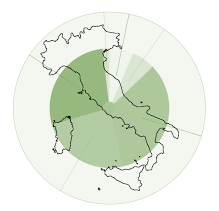In a recent episode of IHME’s “Global Health Insights,” Joseph Dieleman, professor of Health Metrics Sciences at IHME, and Thomas Bollyky, director of the Council on Foreign Relations (CFR) Global Health program, discuss how to arrive prepared for the next pandemic.
The conversation revolves around the findings of an article published in The Lancet, which explores possible contextual factors associated with variability in COVID-19 infection and mortality in the different countries observed. The research shows that people’s level of trust in their government, their national institutions and of interpersonal trust are the factors that most impacted the results.
“If these associations were causal and all countries improved trust in their government to the level of Denmark (approximately the 75th percentile of observed countries), 12.9 percent fewer global infections would have occurred. Similarly, if all countries improved interpersonal trust to the same level (to the 75th percentile of observed countries), the effect would have been even greater: 40.3 percent fewer global infections,” Joseph Dieleman declared.
Both scholars agree that, fortunately, trust is a factor that can be worked on, increasing it, even in times of crisis. Accuracy in information, timeliness, clear communications about the most relevant risks and vulnerabilities, transparency, and freedom from conflicts of interest are the elements by which governments, institutions, and entire communities can maintain and increase trust.
Then what to do? According to Dieleman and Bollyky, more investment is needed in risk communication and community engagement strategies so as to increase individuals’ confidence in public health guidance. It is essential to build trust, on a concrete basis, even in times of NON-crisis. Citizens need to know and perceive that both the communication and the decisions made are free of ambiguities arising from approximation, private interests, and favoritism toward special interests.
